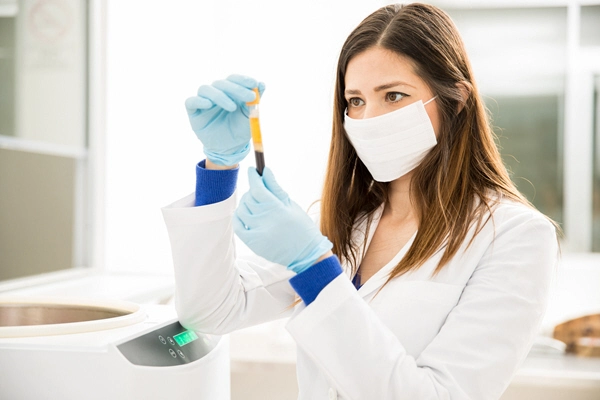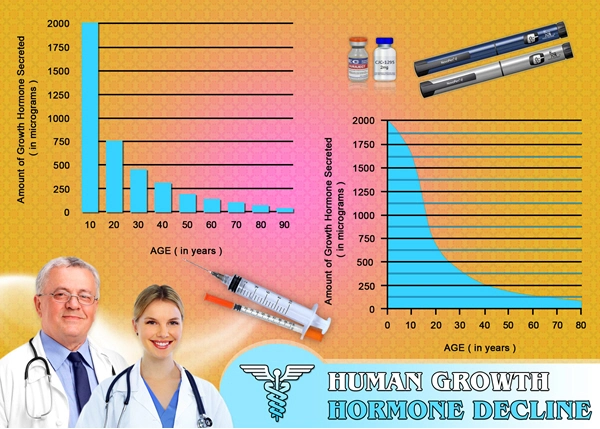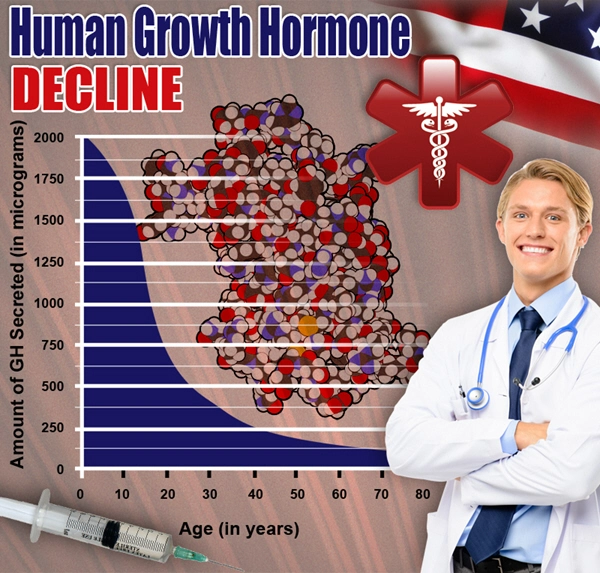Introduction
Erectile dysfunction (ED), commonly referred to as impotence, is a prevalent concern among American males, affecting millions across various age groups. While numerous factors contribute to this condition, one often overlooked aspect is the role of medication side effects. This article delves into how certain medications can lead to soft erections and discusses potential management strategies for affected individuals.
Understanding Medication-Induced ED
Medication-induced erectile dysfunction occurs when drugs prescribed for other health conditions inadvertently affect sexual function. Common culprits include antihypertensives, antidepressants, and medications for prostate enlargement. These drugs can interfere with blood flow, nerve function, or hormone levels, all of which are crucial for achieving and maintaining an erection.
Common Medications and Their Effects
Several classes of medications are known to potentially cause ED. Antihypertensive drugs, such as beta-blockers and diuretics, can reduce blood flow to the penis, making it difficult to achieve a firm erection. Similarly, selective serotonin reuptake inhibitors (SSRIs), commonly used to treat depression, can diminish libido and impair erectile function. Additionally, medications like finasteride, used for benign prostatic hyperplasia, can affect hormone levels, leading to sexual side effects.
Mechanisms Behind Soft Erections
The mechanisms by which medications cause soft erections vary. For instance, beta-blockers may reduce the heart's ability to pump blood effectively, thereby decreasing penile blood flow. SSRIs can increase serotonin levels, which may decrease sexual desire and arousal. Understanding these mechanisms is crucial for both patients and healthcare providers to address the issue effectively.
Identifying Medication-Induced ED
Recognizing medication-induced ED can be challenging, as symptoms may be subtle or attributed to other causes. Patients experiencing persistent difficulties with erections should discuss their symptoms with their healthcare provider. A thorough medical history, including a review of all medications, is essential to identify potential culprits.
Management Strategies
Managing medication-induced ED involves a multifaceted approach. The first step is often to assess whether the medication causing the side effect is essential. If possible, switching to an alternative drug with a lower risk of ED may resolve the issue. For instance, angiotensin II receptor blockers (ARBs) are less likely to cause ED than beta-blockers and may be a suitable alternative for some patients.
Alternative Treatments
When changing medications is not feasible, other treatments can be explored. Phosphodiesterase type 5 (PDE5) inhibitors, such as sildenafil, are effective in counteracting the effects of certain medications on erectile function. These drugs work by enhancing blood flow to the penis, facilitating firmer erections. Additionally, lifestyle modifications, such as regular exercise, a healthy diet, and stress management, can improve overall sexual health and potentially mitigate the effects of medication-induced ED.
Psychological Considerations
The psychological impact of ED should not be underestimated. Men experiencing soft erections due to medication side effects may feel frustrated or embarrassed, which can exacerbate the problem. Open communication with partners and seeking support from mental health professionals can be beneficial. Cognitive-behavioral therapy (CBT) has been shown to help some men cope with the emotional aspects of ED.
Conclusion
Medication-induced erectile dysfunction is a significant concern for many American males. Understanding the link between certain medications and soft erections is crucial for effective management. By working closely with healthcare providers, exploring alternative treatments, and addressing psychological factors, men can improve their sexual health and overall quality of life. Awareness and proactive management are key to overcoming the challenges posed by medication side effects on erectile function.

- A Comprehensive Guide to Understanding Erectile Rigidity: The Labyrinth of Soft Erections [Last Updated On: February 25th, 2025] [Originally Added On: February 25th, 2025]
- The Gradual Decline: Unraveling the Science of Softening Erections [Last Updated On: February 26th, 2025] [Originally Added On: February 26th, 2025]
- Revolutionizing Gender Stereotypes: Mastering Confidence Amidst Soft Erections [Last Updated On: February 27th, 2025] [Originally Added On: February 27th, 2025]
- Reviving Manhood: The Power of Lifestyle Alterations in Enhancing Erectile Potency [Last Updated On: February 28th, 2025] [Originally Added On: February 28th, 2025]
- Unfolding Silent Battles: Personal Narratives of Men Confronting Erectile Dysfunction [Last Updated On: February 28th, 2025] [Originally Added On: February 28th, 2025]
- The Power of the Psyche: A Deep Dive Into the Effects of Psychological Stress on Male Sexual Health [Last Updated On: March 1st, 2025] [Originally Added On: March 1st, 2025]
- Demystifying the Stigma: An Objective Discourse on Erectile Dysfunction [Last Updated On: March 2nd, 2025] [Originally Added On: March 2nd, 2025]
- Enhancing Erectile Function Through Exercise: Understanding the Benefits of Physical Activity for Combating Erectile Dysfunction [Last Updated On: March 3rd, 2025] [Originally Added On: March 3rd, 2025]
- Nutritional Strategies to Enhance Erectile Function and Health [Last Updated On: March 4th, 2025] [Originally Added On: March 4th, 2025]
- From Flab to Firm: The Role of Weight Loss in Enhancing Male Sexual Health [Last Updated On: March 5th, 2025] [Originally Added On: March 5th, 2025]
- Exploring Sleep's Impact on Erectile Function and Male Sexual Health [Last Updated On: March 5th, 2025] [Originally Added On: March 5th, 2025]
- Enhancing Erection Quality: The Role of Meditation and Mindfulness in American Males [Last Updated On: March 5th, 2025] [Originally Added On: March 5th, 2025]
- Understanding and Managing Soft Erections: Causes, Strategies, and Treatments [Last Updated On: March 6th, 2025] [Originally Added On: March 6th, 2025]
- The Impact of Hormonal Balance on Male Sexual Health: Testosterone, Estrogen, and Erectile Function [Last Updated On: March 7th, 2025] [Originally Added On: March 7th, 2025]
- The Crucial Link Between Blood Flow and Erectile Function: Vascular Insights for Men [Last Updated On: March 8th, 2025] [Originally Added On: March 8th, 2025]
- The Interconnection of Health and Erectile Dysfunction: A Holistic Wellness Approach for Men [Last Updated On: March 9th, 2025] [Originally Added On: March 9th, 2025]
- Aging and Soft Erections: Causes, Management, and Support for American Males [Last Updated On: March 10th, 2025] [Originally Added On: March 10th, 2025]
- Debunking Myths: The Truth About Soft Erections in American Men [Last Updated On: March 14th, 2025] [Originally Added On: March 12th, 2025]
- Navigating the Challenges of Drug-Induced Erectile Dysfunction in American Males [Last Updated On: March 13th, 2025] [Originally Added On: March 13th, 2025]
- Mastering Stress: Strategies to Overcome Stress-Induced Erectile Challenges in American Men [Last Updated On: March 15th, 2025] [Originally Added On: March 15th, 2025]
- Understanding Soft Erections: Causes, Impacts, and Treatment Options for American Males [Last Updated On: March 17th, 2025] [Originally Added On: March 17th, 2025]
- Counseling's Role in Managing Soft Erections: A Holistic Approach [Last Updated On: March 17th, 2025] [Originally Added On: March 17th, 2025]
- Vitamins and Minerals: Enhancing Erection Quality and Sexual Health [Last Updated On: March 17th, 2025] [Originally Added On: March 17th, 2025]
- Herbal Remedies for Enhancing Erectile Function in American Males [Last Updated On: March 18th, 2025] [Originally Added On: March 18th, 2025]
- Smoking's Impact on Erectile Dysfunction: Benefits of Quitting for American Men [Last Updated On: March 19th, 2025] [Originally Added On: March 19th, 2025]
- Enhancing Erection Health: Diet, Exercise, Stress Management, and Holistic Wellness Strategies [Last Updated On: March 20th, 2025] [Originally Added On: March 20th, 2025]
- Soft Erections in Young Men: Causes and Effective Solutions Explored [Last Updated On: March 20th, 2025] [Originally Added On: March 20th, 2025]
- Diagnosing Soft Erections: A Comprehensive Guide to Understanding and Managing ED [Last Updated On: March 20th, 2025] [Originally Added On: March 20th, 2025]
- Alcohol's Impact on Erection Quality: Strategies for American Males [Last Updated On: March 21st, 2025] [Originally Added On: March 21st, 2025]
- American Couples Overcoming Soft Erections: Communication, Therapy, and Lifestyle Changes [Last Updated On: March 22nd, 2025] [Originally Added On: March 22nd, 2025]
- Soft Erections and Mental Health: Understanding and Addressing the Connection [Last Updated On: March 22nd, 2025] [Originally Added On: March 22nd, 2025]
- Genetic Factors in Erectile Dysfunction: Insights and Implications for American Males [Last Updated On: March 22nd, 2025] [Originally Added On: March 22nd, 2025]
- Nitric Oxide's Role in Male Erections: Combating Soft Erections in American Men [Last Updated On: March 22nd, 2025] [Originally Added On: March 22nd, 2025]
- Workplace Stress and Its Impact on American Men's Sexual Health and ED [Last Updated On: March 22nd, 2025] [Originally Added On: March 22nd, 2025]
- Behavioral Strategies to Overcome Soft Erections in American Men [Last Updated On: March 22nd, 2025] [Originally Added On: March 22nd, 2025]
- Cardiovascular Health's Impact on Erection Quality: A Comprehensive Guide [Last Updated On: March 22nd, 2025] [Originally Added On: March 22nd, 2025]
- Biofeedback: Enhancing Erectile Control and Addressing Soft Erections in Men [Last Updated On: March 22nd, 2025] [Originally Added On: March 22nd, 2025]
- Exploring Alternative Medicine for Enhancing Erectile Health in American Men [Last Updated On: March 23rd, 2025] [Originally Added On: March 23rd, 2025]
- Pelvic Floor Exercises: Enhancing Erection Quality and Sexual Health in Men [Last Updated On: March 23rd, 2025] [Originally Added On: March 23rd, 2025]
- Embracing Vulnerability: Redefining Sexual Success with Soft Erections [Last Updated On: March 23rd, 2025] [Originally Added On: March 23rd, 2025]
- Physical Therapy: A Promising Non-Invasive Treatment for Soft Erections [Last Updated On: March 24th, 2025] [Originally Added On: March 24th, 2025]
- Economic Impact of Soft Erections on American Men: Costs and Solutions [Last Updated On: March 24th, 2025] [Originally Added On: March 24th, 2025]
- Soft Erections vs. Erectile Dysfunction: Understanding and Treatment for American Males [Last Updated On: March 24th, 2025] [Originally Added On: March 24th, 2025]
- Soft Erections: Understanding, Communicating, and Overcoming ED in Relationships [Last Updated On: March 24th, 2025] [Originally Added On: March 24th, 2025]
- Exploring Alternative Therapies for Soft Erections: A Comprehensive Guide [Last Updated On: March 24th, 2025] [Originally Added On: March 24th, 2025]
- Innovative Technologies Revolutionizing Erectile Dysfunction Treatment [Last Updated On: March 24th, 2025] [Originally Added On: March 24th, 2025]
- Understanding Soft Erections: Causes, Diagnosis, and Treatment Options for American Men [Last Updated On: March 24th, 2025] [Originally Added On: March 24th, 2025]
- Managing Soft Erections: Understanding, Preparing, and Treating ED Effectively [Last Updated On: March 24th, 2025] [Originally Added On: March 24th, 2025]
- Obesity and Soft Erections: The Crucial Role of Weight Management in Sexual Health [Last Updated On: March 24th, 2025] [Originally Added On: March 24th, 2025]
- Managing Soft Erections: Beyond Standard PDE5 Inhibitors [Last Updated On: March 25th, 2025] [Originally Added On: March 25th, 2025]
- Metabolic Syndrome and Soft Erections: Understanding the Link in American Males [Last Updated On: March 25th, 2025] [Originally Added On: March 25th, 2025]
- Environmental Toxins: A Hidden Threat to Male Sexual Health and Erections [Last Updated On: March 25th, 2025] [Originally Added On: March 25th, 2025]
- Mindfulness Techniques to Manage and Overcome Soft Erections: A Step-by-Step Guide [Last Updated On: March 25th, 2025] [Originally Added On: March 25th, 2025]
- Soft Erections and Self-Esteem: Psychological Strategies for Recovery and Confidence [Last Updated On: March 25th, 2025] [Originally Added On: March 25th, 2025]
- Hormonal Health and Erections: Optimizing Endocrine Function for Better Sexual Outcomes [Last Updated On: March 26th, 2025] [Originally Added On: March 26th, 2025]
- Superfoods Boost Vascular Health, Combat Soft Erections in American Men [Last Updated On: March 26th, 2025] [Originally Added On: March 26th, 2025]
- Soft Erections and Prostate Health: A Vital Connection for American Men [Last Updated On: March 27th, 2025] [Originally Added On: March 27th, 2025]
- Overcoming Soft Erections: Medical, Lifestyle, and Psychological Solutions for American Men [Last Updated On: March 27th, 2025] [Originally Added On: March 27th, 2025]
- Enhancing Sexual Stamina and Managing Soft Erections: A Comprehensive Guide [Last Updated On: March 27th, 2025] [Originally Added On: March 27th, 2025]
- Sleep Disorders Impact on Erections: Insights and Management for American Men [Last Updated On: March 27th, 2025] [Originally Added On: March 27th, 2025]
- Sedentary Lifestyles and Erection Health: Impact and Exercise Solutions for American Males [Last Updated On: March 27th, 2025] [Originally Added On: March 27th, 2025]
- Digital Health Innovations for Monitoring and Managing Soft Erections in Men [Last Updated On: March 27th, 2025] [Originally Added On: March 27th, 2025]
- Understanding and Treating Soft Erections: A Comprehensive Guide for American Men [Last Updated On: March 27th, 2025] [Originally Added On: March 27th, 2025]
- Understanding and Overcoming Soft Erections: A Comprehensive Guide for American Males [Last Updated On: March 27th, 2025] [Originally Added On: March 27th, 2025]
- Chronic Inflammation and Soft Erections: Impacts on Male Sexual Health [Last Updated On: March 27th, 2025] [Originally Added On: March 27th, 2025]
- Erection Physiology: Understanding and Addressing Soft Erections in American Males [Last Updated On: March 28th, 2025] [Originally Added On: March 28th, 2025]
- Vacuum Pumps and Innovative Devices: Enhancing Erection Quality and Sexual Health [Last Updated On: March 28th, 2025] [Originally Added On: March 28th, 2025]
- Cardiovascular Exercise Boosts Erection Quality in American Males [Last Updated On: March 29th, 2025] [Originally Added On: March 29th, 2025]
- Stress Management Techniques to Improve Men's Erectile Function: A Comprehensive Guide [Last Updated On: March 30th, 2025] [Originally Added On: March 30th, 2025]
- Understanding Soft Erections: Causes, Impacts, and Embracing New Masculinity [Last Updated On: March 30th, 2025] [Originally Added On: March 30th, 2025]
- Nerve Health's Crucial Role in Enhancing Erectile Function for American Males [Last Updated On: March 30th, 2025] [Originally Added On: March 30th, 2025]
- Innovative Research and Technology Revolutionizing Soft Erection Treatments [Last Updated On: April 3rd, 2025] [Originally Added On: April 3rd, 2025]
- Soft Erections: Causes, Impacts, and Effective Management Strategies for American Men [Last Updated On: April 4th, 2025] [Originally Added On: April 4th, 2025]
- Lifestyle Changes to Enhance Erection Quality and Combat Erectile Dysfunction [Last Updated On: April 5th, 2025] [Originally Added On: April 5th, 2025]
- Navigating Soft Erections: Open Dialogue and Medical Insights for American Men [Last Updated On: April 7th, 2025] [Originally Added On: April 7th, 2025]
- Vascular Health's Crucial Role in Enhancing Erection Quality for American Men [Last Updated On: April 7th, 2025] [Originally Added On: April 7th, 2025]
- Cortisol's Impact on Erectile Function: Managing Stress for Better Sexual Health [Last Updated On: April 8th, 2025] [Originally Added On: April 8th, 2025]
- Soft Erections: Broader Impacts on American Men's Lives and Comprehensive Solutions [Last Updated On: April 8th, 2025] [Originally Added On: April 8th, 2025]
- Relationship Dynamics and Their Impact on Soft Erections in American Males [Last Updated On: April 10th, 2025] [Originally Added On: April 10th, 2025]
- Understanding Soft Erections: Causes, Impacts, and Holistic Management Strategies for American Men [Last Updated On: April 10th, 2025] [Originally Added On: April 10th, 2025]



List of USA state clinics - click a flag below for blood testing clinics.
Word Count: 557



















































